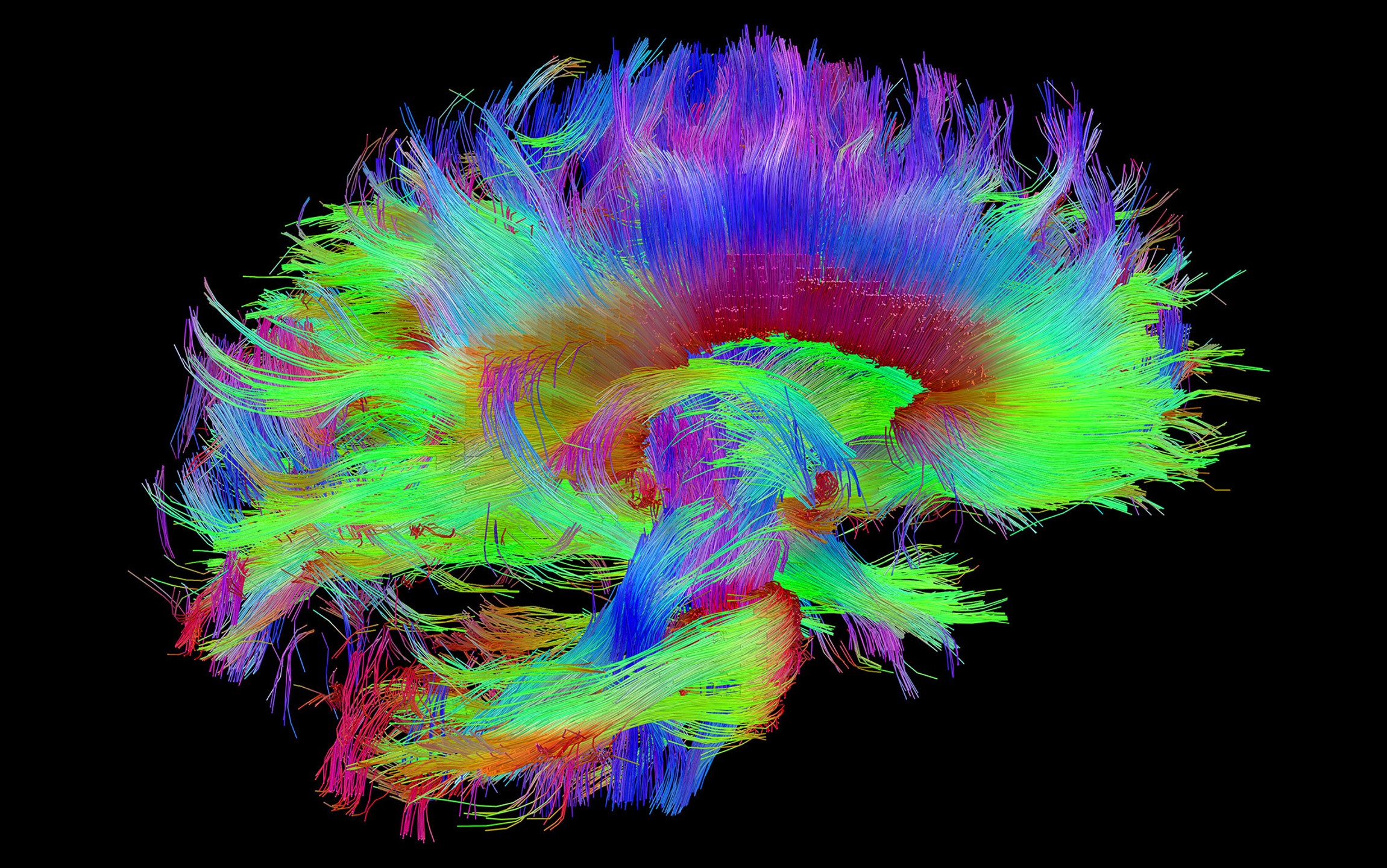
What does OTTO AI man Jens Dorn have to do with the bike industry?
I've had contact with the bike industry since I was 14, because I helped repair bikes in the bike store in Bergisch Gladbach. I built my first frame myself when I was seventeen. Much later, I accompanied Klever-Mobility with my internet agency on its European market entry. This included setting up the first website, the store and online marketing. During this time, I also accompanied Klever Mobility to Eurobike.
What exactly do you do at OTTO?
I work there in business intelligence. So with data, analyses and also with artificial intelligence. I've actually always had several topics. The first one was: in 2018, I actually already started working with the technologies that are now leading to ChatGPT. We built these kinds of transformers in preliminary stages two years ago. At the same time, I built up data-driven logistics, i.e. business intelligence for logistics, at Otto and also played a key role in developing overarching logistics management.
On behalf of the very top, I then spent eight months developing search technology with an outstanding team that went a long way and has since been gradually integrated into OTTO Search.
For the last year and a half, I've been heavily involved in developing the systems for our assortment managers. The aim is to manage profitability, customer relevance and capacities as optimally as possible across the entire very heterogeneous product range. Data and artificial intelligence can make quite a contribution here.
What is the most exciting question for you in the context of business?
There are several. One is: How do I combine the capabilities of large language models with my own models in which I can develop and protect my USP, my customer interaction, and my intellectual properties under my responsibility?
How surprising was the public hype around ChatGPT?
It was clear that a tipping point like this had to come at some point. It simply has to do with the maturity of innovations. The fact that this is happening right now with ChatGPT was somewhat to be expected with OpenAI, given what they've already done and the performance and the people they have. But it could just as easily have been Google being faster or actually anybody from China.
That means it's logical to go out sooner rather than later because the learning curve gets steeper when I unleash it on people?
Yes. Learning actually always means understanding what someone else had already understood. Understanding, on the other hand, means understanding yourself. And what it comes down to is that you can understand yourself at a higher speed. And for that you need to go out early and face the feedback.

But there's nothing worse than when the machine does something wrong.
And the exciting question is: How do you build the interaction? If you say: Look, there's an error and you just remove it, then the system doesn't get a signal as to whether that was good. But if you show that, I can save it as validated. If I do that for a while, I learn much faster than if I always think I'm going to be right.
That sounds very abstract. How does that translate into active systems?
Instead of planning the web store completely through, you could think of it as a learning system. That's a completely different approach. The bottom line is that user interactions are strong learning signals. But you also have experts in house, they send signals too. How do you build those two systems together now?
It's an interplay between AI and humans.
Exactly. An AI like ChatGPT is an entity that gives you answers, but what it learns from is from your response.
The second thing that happens, which is totally exciting, is that if you look at hardware, until now we've always tried to generalize hardware. So we use a CPU, it can compute all different stuff. But now analog computers are getting totally interesting again because we're moving the generalization into the models. Analog computers can do defined computation with much less energy and time. There are first chips that require only three watts and do as much as high performance graphics cards.
That means you can use these models on any client, on any corner. On every cell phone, on every watch. And if something like that were now available for training, you would need only a fraction of the energy. A lot of things are going to happen.
"If I start training that in a model, I could tell you exactly what's relevant in the market right now and how."
The systems will become much more powerful?
Absolutely. GPT is based on a technology called Transformer. There are early approaches now that could become more powerful than Transformer by leaps and bounds. I would rate the probability of GPT's technology being central for even the next year and a half as low.
What does Transformer mean? Can you explain it in children's language?
Transformer is simply a certain way of training models. It's model training that rewards attention. It's a system that virtually rewards the neural network in a certain way. So the network learns which things probably belong to each other.
Do we all need to learn prompting now?
No. What's coming out for technology right now all the time is disruption on a weekly basis. Now it's prompt engineering that you'd have to learn according to most. Fiddlesticks. AgentGPT takes over, rudimentary, already whole packages of tasks, like planning a trip. This disrupts prompt engineering. You don't need prompt engineering anymore. You just need to say what you want. The prompts are created and passé, history.
It's a matter of having a better interface.
Right. Just typing text into a box is actually one of the worst UX you can imagine to interact with such systems. The question is, what does the UX have to be like for that to drive your intuition?
And the core question behind that is, what capabilities do we need to deal with permanent disruption?
And what are those capabilities?
The pattern is definitely: to move from planning more to optimization.

What does that mean for the bicycle industry?
I think the essence is that this emerging technology is not something that's just going to come down on them, but something that smaller mid-sized companies can start to use for themselves. It's not that hard.
Give me an example.
Imagine if there was a new kind of bicycle. Something like a melange of gravel bike and mountain bike. With an e-bike, with a motor, to go uphill well. So I gave ChatGPT a little bit of context and then I said, let's just generate a product name for it first. And then I started getting product descriptions down to the technical specifications. And that's in the style of Gazelle.
If I have some wild idea, within 20 minutes I have ten different variants of how something like that could be described. And then I can also have pictures output. So in one morning I have 50 variants that would be potentially interesting. I can then show these variants to customers first - instead of developing them further - in order to learn from them.
The engineer leaves his ivory tower and has to become a communicator.
The expertise practically goes up a meta-level. You're no longer working in the system, you're working on the system doing the development.
And what does that mean for a retailer like OTTO?
It's relatively easy to keep an eye on the competition these days. I could come up with the idea of building a system for German e-commerce that masters the semantics of German e-commerce. If I start training that in a model, I could tell you exactly what is relevant in the market right now and how. And then I ask the question: How does logistics actually have to function in order to be compatible with this? It is also a kind of Transformer technology: understanding what is important, combined with what makes economic sense from our point of view.
But what you can't see from data is the change. The exciting part is that you're most likely to dominate the market if you're the one putting the change in. That is, the thing you have to get right is that anything that runs standardized like it did last year, you don't have to worry about it, so you can drive the change that drives the market.
"[...] the more I can do by default, the more interesting becomes the differentiation."
People get rid of basic tasks in order to become more creative?
Exactly. The interesting thing is that the more I can do by default, the more interesting differentiation becomes. Do we still need all those people for that if you can do everything automatically and normally? Yes, because differentiation becomes much more important.
What would you do today if you were an entrepreneur?
Hugging Face has over 118,000 of these and similar models listed as open source right now, and more are being added every day. I can just download them and host them at my place and use them. I adapt that to my domain or I go into fine tuning. That means I can train these models further. And then I start teaching them things that belong to my industry, to my company, to my context.
How do you imagine the training process?
In the first step, I put in data. It has to be in a certain form, but that would go too far at this point.
The second thing I do is I then go and train that. That means that I now have experts who work with the appropriate system and say, what was generated here is right, what was generated here is wrong.
Ideally, you generate a model that you can use as generalistically as possible. That you have a model that can be used to fuel search as much as customer service.
Would you integrate a system like ChatGPT as a chatbot into a website?
Of course, I want to train my model to avoid nonsense as much as possible. After all, that's what OpenAI is working on, among other things. But at the same time, there is an adaptation curve among users. Integrating it into the website definitely allows for a much faster learning curve so that the system gets better. It's just not based on rigid rules anymore, like previous chatbots.
Isn't the absence of a rule system also a problem in terms of control?
Let's put it this way, the exciting part is always the comparison with humans. You can say, of course, ChatGPT hallucinates sometimes. You have to get a handle on that. But the comparative statement is: less often than humans in some places.
Jens Dorn

Since 2018, Jens Dorn has been working at OTTO on and with technologies on which offerings such as ChatGPT are based. In collaboration with huggingface.com, he has contributed to the democratization of these models with OTTO, opening the way for medium-sized companies to train and use these models for themselves as well.
He established business intelligence for logistics at OTTO and played a key role in the development of overarching logistics management in 2020. In 2021, he was able to demonstrate the potential of data science-driven search technology at OTTO. In the last two years, Jens Dorn has been developing effective approaches to supply and demand management for assortment based on new technology. His focus is on integrating new enterprise technological capabilities into a new operational operating system. #OwnYourAI
As a teenager, Jens Dorn helped repair bikes at the bike store around the corner and later built his own bike frames. At the age of twenty, he founded an idea agency and began studying business administration in parallel. In 2006, the agency was refocused on the topic of digitalization. In this context, he supported Klever Mobility, an e-bike provider, in their market entry into the European market for several years and got to know the bicycle industry in the process.


